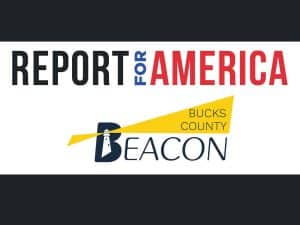With an approved state budget, educators across the commonwealth will begin to see money flow from Harrisburg.
On November 12, after nearly four months of wrangling and delays, a divided Pennsylvania legislature approved a roughly $50.1 billion budget that opens the door for state and federal grant “pass through” funding to public school districts.
The Pennsylvania Senate passed House Bill 416 by 43-6 with 1 “no vote.”
“The passage of Pennsylvania’s budget after a four-month impasse is an important step toward stability. While the delay created real challenges this outcome demonstrates that even in a divided government compromise is possible when the focus remains on serving students and families,” said Nathan Mains, chief executive officer of the Pennsylvania School Board Association.
The budget wrangling caused public school district administrators and school boards funding headaches as they faced uncertainty over state, federal, grant and subsidies. Districts were forced to make difficult choices about delaying facilities maintenance and improvements; hiring and staffing decisions and funding programs.
READ: Education Groups Highlight How Pennsylvania Budget Stalemate Shortchanges Students’ Education
“We are deeply grateful for the lawmakers who dug their heels in and pushed substantial cyber charter funding and accountability reforms across the finish line,” said Susan Spicka, executive director of Education Voters of Pennsylvania.
Reforms tied to the budget include better cyber charter school accountability, increased oversight, reduced payments by school districts to cyber charter schools, and a reduction in costs paid to them, such as activities and maintenance and facilities costs. More stringent student wellness checks and stricter attendance policies for synchronous and asynchronous class time were tied to the reforms, according to Education Voters PA.
A detailed list of cyber charter school reforms may be found here.
Instead of a new school voucher program, investment focuses on increasing funds to the existing Educational Improvement Tax Credit Program (EITC), which allows eligible businesses to receive tax credits for as much as 75% of their contributions (with a ceiling of $750,000 per year) to state approved educational scholarship programs, educational organization programs and pre-Kindergarten scholarship organizations.
Spicka said more work remains to be done.
“The reforms in the school code represent an important and significant step toward reining in wasteful spending by the cyber charter industry and creating accountability for cyber operators to ensure that their students are supported, safe and actually attending school,” Spicka said.
The 2025-26 state budget signed November 12 by Gov. Josh Shapiro invests nearly $900 million in public education, including funds for public school adequacy, basic and special education, school infrastructure, as well as workforce and economic development investment and supporting senior Pennsylvanians and disadvantaged populations, according to PA.Gov.
“This is another step forward – one that must be followed by continued commitment and sustained investment until every student, in every community, has the resources they need to learn and thrive.” – Deborah Gordon Klehr, Executive Director of the Education Law Center-PA.
A joint statement issued by the Education Law Center-PA and the Public Interest Law Center said lawmakers “finally passed a state budget that continues the commonwealth’s progress toward meeting the funding commitments” required under Commonwealth Court ruling mandates.
A 2023 judicial ruling said Pennsylvania’s school funding system was unconstitutional.
Key education funding points in the new budget include a $565 million increase to the second installment to “the adequacy and tax equity payments needed to fix Pennsylvania’s unconstitutional funding system,” basic and special education increases, among other additional education investments.
Due to the protracted budget process impasse, many school districts along with public charter schools had to take loans to cover expenses while state funding was frozen, a Teach Plus Pennsylvania press release stated.
“These schools are not expected to be reimbursed for this interest, meaning that money will never reach classrooms and students and local taxpayers will shoulder this unnecessary expense. As we look ahead to the next state budget cycle, which will kick off in less than three months, we encourage legislative leaders to work in good faith to pass an on-time budget that continues to prioritize education,” stated Teach Plus.
“But with this budget, lawmakers affirmed that the commonwealth remains on the path toward a fully and fairly funded public education system. This is another step forward – one that must be followed by continued commitment and sustained investment until every student, in every community, has the resources they need to learn and thrive,” said Deborah Gordon Klehr, executive director of the Education Law Center-PA.
Dan Urevick-Ackelsberg, a senior attorney at the Public Interest Law Center said the “bipartisan consensus” indicates the need for constitutional school funding.
“It took too long, but we moved one year closer to a system that will transform lives,” Urevick-Ackelsberg said.
The Public Interest Law Center statement said while lawmakers have committed to fully fund public schools, annual sustained funding increases will be required to:
· Train and retail quality professionals
· Keep pace with technology
· Regularly update educational curriculum
· Ensure and maintain buildings and facilities appropriate to educate student and staff populations.
“This work is far from over,” the joint statement said.






